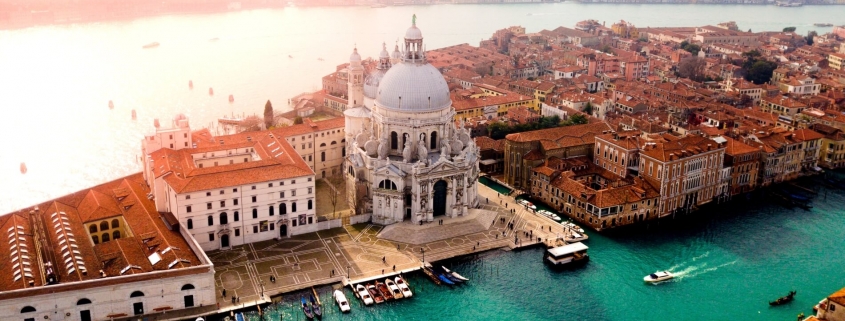Learn how the financial crisis influenced PR practices in Italy, how to intelligently integrate social media and classical press release distribution to fulfill the needs of today’s media professionals in Italy in our international PR series today.
1. What is the latest trend (change) in PR you have identified in your region?
Vilma Bosticco: Italian PR has been influenced by the increasing use of social media tools. The Internet is a platform that can potentially bring a news to target audiences in real time and the nature of the Internet – where people share information without filters and in many cases without checking whether the information is correct or not – can create PR crisis. So if a company decides that it’s time to have a social media strategy, it is imperative that this strategy includes monitoring activities for forums, blogs and other online tools, in order to have a clear idea on conversations which are going on and ensure that crisis communications is done adequately.
Another aspect influencing the way we handle press offices activities in Italy is without any doubt the economical crisis that impacted our editorial market. We have to deal with a more limited number of magazines and a larger number of freelancers. This means that when approaching traditional media we need to avoid press conferences (unless the news is really very big) and turn to press interviews, press briefings or press tours. In addition it is important to prepare freelancers before putting them in front of an executive for an interview: the nature of their work forces them to deal with a huge number of different topics and they may not be perfectly prepared on a specific market or technology.
2. How does your agency handle / embrace this?
Vilma Bosticco: I think that we have been lucky because, being focused on the ICT market since our inception, we have been able to observe the social media expansion from a privileged point of view. Therefore it was quite easy to embrace these tools and to implement them as part of our ongoing PR campaigns for our customers. Also many journalists who have been writing for IT publications in the past transformed into bloggers. As the relation with them was already established, we just needed to provide them with information in different format.
3. Can you give a recent example from a project or best practice?
Vilma Bosticco: As mentioned before, press events are considered too time consuming from our journalists and their attendance is decreasing. But, on the other hand, clients want to comment specific announcements, highlighting important aspects for the Italian market, giving examples, transferring the most important messages to the journalists. These things are often difficult to highlight in a press release.
So we started to create video-press releases: we create a video (maximum 3 minutes) where an Italian spokesperson highlights the most important points of a specific announcement so that we give the journalist a clear idea on most important topics of the announcement. The video is embedded into the press release (in order for the journalist to have also written material) and sent to journalists, bloggers, etc. The video itself is posted on Youtube and can therefore be shared through social media tools. This has proven to be a perfect tool to combine journalists and clients needs and, on another hand, video is one of the preferred tools in social media activities in Italy.
4. Are there PR practices in which you think your region differs from PR in other part of the world?
Vilma Bosticco: In our country language is still an issue, therefore international corporations should take into account the fact that launching a central campaign through social media is not a guarantee for getting coverage in the local country. Each campaign needs to be localized, not only as far as contents are concerned, but also in terms of local market needs and understanding. Also when approaching Italian journalist you have to take into account the fact that they may not have the same approach as, for example, UK or US journalists have.
5. Can you describe common mistakes foreign companies make?
Vilma Bosticco: The most common mistake is to think that what worked abroad will for sure work in Italy as well. It’s not always the case. For example we noticed a trend where foreign companies prefer to centrally handle global announcements by doing teleconferences with journalists from different countries.
While I fully understand the reasons to do so (cost reduction, saving time and money avoiding executives travelling across the European continent) I’m always skeptical about organizing such “virtual” meetings with Italian journalists. Apart from language barriers, our reporters are difficult to “catch”: They may confirm their attendance to the teleconference and then they simply do not connect to the call. When you contact them the following day to understand why they missed the event, they’ll answer that they had last minute priorities and they’ll ask for a press kit or a playback.
There are other areas in which we always advice our customers as companies regularly make mistakes in situations such as press meetings. Maybe “off the record comments” work in other regions but we warn customers about mentioning information they don’t want to see appearing in the media in Italy. I guess we Italians have a hard time to keep a secret. Maybe is has to do with our history of having big families or living in small villages or city districts where when you tell somebody something, it can be expected that soon the whole family or village knows about it anyways.
6. What do clients from other markets need to keep in mind when they plan to do PR in your region?
Vilma Bosticco: You need to tailor the information you are sharing to the different journalists’ needs and level of knowledge. This is why having a local PR agency driving your campaigns is really important. I’ve seen many examples of companies deciding to centrally handle PR activities in the Italian market. Unless you are a very well known brand, this usually turns into poor and fragmented coverage. You still need to carry on ongoing activities in Italy, you have to be very proactive with our press if you want to get the level of attention that any company investing in PR is wishing to receive.
***
Next Thursday Japanese PR specialist Tadahisa Kimura will report that traditional media, such as newspapers and TV, are still key to successful PR in Japan. PR experts however expect a significant shift towards online PR within the next few years.
__________________________________________________
Vilma Bosticco is a Managing Partner of the Milan based agency Prima Pagina Comunicazione – GlobalCom PR Network Partner Italy for IT and Tech topics. Vilma has spent the first ten years of her professional life in the IT market working for Italian subsidiaries of US companies like Concurrent Computer Corporation, Oracle Corporation, Ashton-Tate, Borland. In 1993 she became part of the staff of a Public Relation Agency operating in the IT market, where she was Account Supervisor. She founded Prima Pagina Comunicazione in December 1995 together with Tania Acerbi and Massimo Reverberi.


